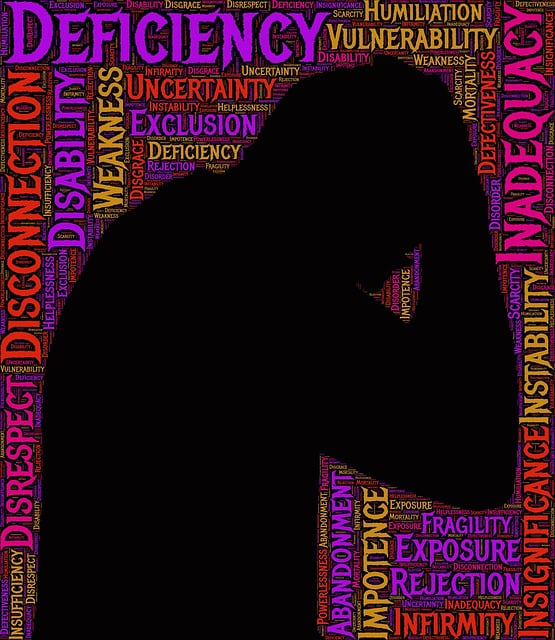Chronic pain is a multifaceted issue that demands an integrated approach. For effective Superior Chronic Pain Therapy, healthcare providers must address physiological, psychological, and socio-cultural aspects. Mental health experts play a pivotal role by teaching advanced coping skills development techniques, risk management planning, empathy building, and early intervention strategies. Tailored mental health education programs equip individuals with tools like mindfulness, cognitive reframing, and resilience building to actively manage their pain and improve quality of life. CBT and mindfulness practices are evidence-based techniques that modify negative thought patterns and reduce emotional distress. Public awareness campaigns, including podcasts, have popularized these methods, leading to improved stress management, reduced medication reliance, enhanced sleep, and increased resilience in chronic pain sufferers.
“Unraveling the complexities of chronic pain management, this comprehensive guide explores effective coping skills development. Understanding chronic pain is the first step towards superior therapy, empowering individuals to take control of their well-being. The article delves into the intricate relationship between coping strategies and pain management, offering insights on identifying personal techniques. Discover evidence-based practices to enhance coping abilities and learn practical applications for integrating these skills into daily life. By exploring these strategies, individuals can navigate their journey towards a more manageable and fulfilling life with chronic pain.”
- Understanding Chronic Pain: A Comprehensive Overview
- The Role of Coping Skills in Managing Chronic Pain
- Identifying Personal Coping Strategies for Effective Management
- Evidence-Based Techniques for Enhancing Coping Abilities
- Integrating Coping Skills into Daily Life: Practical Applications and Success Stories
Understanding Chronic Pain: A Comprehensive Overview

Chronic pain is a complex and multifaceted condition that requires a comprehensive understanding from healthcare professionals. It’s more than just physical discomfort; it significantly impacts an individual’s emotional, mental, and social well-being. Superior chronic pain therapy involves recognizing the interplay between physiological, psychological, and socio-cultural factors contributing to pain persistence. Mental health professionals play a pivotal role in this journey by employing advanced coping skills development techniques.
Risk management planning is crucial for these professionals, as they navigate the intricate landscape of chronic pain. Empathy building strategies are essential tools to foster effective communication and understanding between patients and therapists. Moreover, risk assessment techniques help mental health professionals identify potential triggers, setbacks, or complications early on, enabling them to implement appropriate interventions promptly. Through a holistic approach that incorporates these strategies, mental health practitioners can significantly enhance their ability to support individuals navigating the challenges of chronic pain.
The Role of Coping Skills in Managing Chronic Pain

Coping skills play a pivotal role in managing chronic pain, significantly enhancing the overall quality of life for patients. Unlike traditional pain management approaches that focus primarily on reducing symptoms, incorporating effective coping strategies addresses the psychological and emotional aspects of living with persistent pain. By learning these skills, individuals gain tools to navigate the challenges posed by chronic pain, fostering resilience and promoting emotional well-being.
The integration of mental health education programs design tailored for pain management can equip patients with valuable coping mechanisms. These programs often include techniques designed to improve emotional regulation, such as mindfulness practices and cognitive reframing. Resilience building is another key component, teaching individuals how to adapt and bounce back from the setbacks that inevitably arise when dealing with chronic pain. Ultimately, these strategies not only aid in managing symptoms but also empower patients to embrace a more active role in their chronic pain therapy, aiming for a superior chronic pain therapy outcome.
Identifying Personal Coping Strategies for Effective Management

Developing effective coping skills is a powerful tool for managing chronic pain and enhancing overall well-being. The first step in this process involves introspection to identify personal coping strategies that resonate with individual needs. Everyone copes differently, and what works for one person may not be suitable for another. Therefore, mental health professionals should encourage clients to explore and reflect on their unique resources and mechanisms of dealing with pain and stress.
This journey can include self-care practices such as mindfulness, meditation, or engaging in creative outlets. Some find solace in physical activities like yoga or walking, which can help reduce tension and improve mood. Keeping a mental wellness journal is another valuable exercise to track thoughts, emotions, and experiences. Through these methods, individuals can gain insight into their coping mechanisms, identify triggers, and develop strategies for managing pain more effectively, ultimately enhancing their overall Superior Chronic Pain Therapy. Moreover, incorporating these practices into a comprehensive risk management plan, as per the Risk Assessment for Mental Health Professionals guidelines, can ensure a holistic approach to patient care.
Evidence-Based Techniques for Enhancing Coping Abilities

In the realm of superior chronic pain therapy, evidence-based techniques are instrumental in enhancing coping abilities. One such approach is cognitive-behavioral therapy (CBT), which focuses on identifying and modifying negative thought patterns that can exacerbate pain. CBT teaches individuals to replace these thoughts with more adaptive ones, thereby reducing emotional distress and improving overall quality of life. Additionally, mindfulness practices, including meditation and deep breathing exercises, have been shown to significantly alleviate chronic pain and enhance coping strategies. These techniques help individuals stay present and reduce rumination on symptoms, fostering a greater sense of control and resilience.
Mental health education programs designed with a focus on self-management and mental wellness coaching can also play a pivotal role. Such programs equip individuals with the knowledge and skills to monitor their pain, set realistic goals, and implement effective coping mechanisms. Moreover, the production of engaging mental wellness podcast series can provide accessible platforms for sharing valuable insights and strategies related to pain management and mental health. These educational resources not only empower individuals but also offer a sense of community and support, contributing to improved coping abilities in navigating chronic pain.
Integrating Coping Skills into Daily Life: Practical Applications and Success Stories

Incorporating coping skills into daily routines can significantly enhance one’s ability to manage stress and chronic pain, as evidenced by numerous success stories in superior chronic pain therapy. Simple yet effective techniques like mindfulness meditation have gained traction through public awareness campaigns development, allowing individuals to find moments of calm amidst challenging circumstances. For instance, dedicated mental wellness podcast series production has played a pivotal role in spreading awareness about coping mechanisms, offering practical insights and personal narratives that inspire listeners to integrate these strategies into their lives.
Practical applications include setting aside just 10 minutes daily for mindfulness exercises or engaging in light stretching routines to alleviate tension. These small changes can lead to substantial improvements in mental wellness over time. Many individuals have reported reduced reliance on medication, improved sleep quality, and heightened resilience when confronted with life’s challenges, all of which contribute to a higher quality of life. By integrating these coping skills into their daily lives, people are not only empowering themselves but also setting the stage for long-term success in managing both physical and emotional pain.
Coping skills development is a vital component of superior chronic pain therapy. By understanding the role of coping strategies in managing persistent pain, individuals can identify personalized approaches that work best for them. Integrating evidence-based techniques into daily life not only enhances coping abilities but also improves overall quality of life. This comprehensive approach ensures that folks dealing with chronic pain have the tools necessary to navigate their condition effectively and foster a more fulfilling life.









